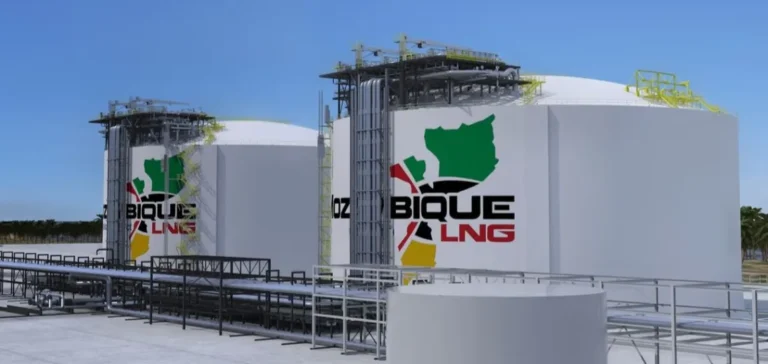French energy group TotalEnergies has announced that its Mozambique LNG project, suspended since April 2021, will not be restarted before 2029. The announcement was made in New York during the Strategy & Outlook 2025 presentation by Chairman and Chief Executive Officer Patrick Pouyanné. This gas project, one of the largest on the African continent, represents an investment of over USD20bn.
The construction site had been halted following several armed attacks in Cabo Delgado province, in northern Mozambique. In response, TotalEnergies declared force majeure and withdrew its staff. The decision to postpone to 2029 provides the company with a more secure restart framework, while allowing local authorities time to continue stabilisation efforts.
A phased approach to restarting
Since the suspension, the Mozambican government has stepped up security operations with support from regional partners. Nevertheless, the operator is adopting a cautious strategy. In July, Patrick Pouyanné stated that a “solid alignment between the government of Mozambique and the investors” was essential to relaunch this type of project.
The restart will require full reactivation of the logistics chain, from port infrastructure to liquefaction units. The site’s annual production capacity is estimated at approximately 13mn tonnes of liquefied natural gas. These volumes were initially expected from 2026 but will not be available until after 2029 under the current schedule.
Delayed impact on global gas flows
The project’s delay postpones the availability of new volumes on global markets, particularly in Europe, where diversifying liquefied natural gas supplies remains a strategic priority. Mozambique had been identified as a key emerging source by several European importers.
The site is based on substantial reserves in the offshore Rovuma Basin, estimated at more than 65 trillion cubic feet of natural gas. The project is being developed in partnership with several international companies from Asia and Europe, involved across the liquefaction and export value chain.
Economic and industrial implications for Mozambique
Beyond its market impact, the delay also carries consequences for the local economic fabric. The project’s development had triggered major infrastructure investments and the mobilisation of a technical workforce across multiple sites in the Palma region.
The Mozambican government has repeatedly expressed in 2025 its desire to see the project restarted under certain conditions. TotalEnergies, for its part, continues to pursue a strategy focused on risk management and investment profitability, amid a global context marked by geopolitical uncertainty.






















